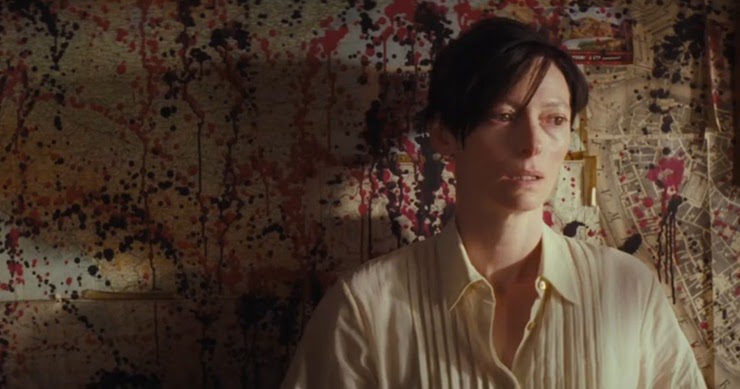I love what an eclectic, wide-ranging genre horror can be. I’m always down for some zombies, werewolves, monsters, killer plants, dark magic, etc. But to me, nothing is scarier than humans and the terrible things they do to one another—for love, for money, for fame; out of rivalry or desperation or fear.
All in Fear, a new queer horror anthology from Open Ink Press, explores horror in all its forms, from the supernatural to the domestic, but every story includes an element of terror that is chillingly human. In honor of its release, here are five of my favorite horror stories where the real danger is human, rather than paranormal.
The Sound of His Horn by Sarban
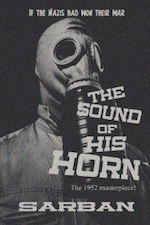 I wanted to include a humans-hunting-humans story, and The Sound of His Horn narrowly beat out “The Most Dangerous Game” as my favorite humans-as-prey tale. Bizarre, seductive, and nightmarish, this story-within-a-story tells of a soldier who runs into an electric barrier during World War II and wakes up in a lovely hospital, tended to by kind nurses. Soon, however, he discovers that he’s traveled one hundred years into a future where the Germans won the war—and that the estate where he’s being rehabbed belongs to Count Hans von Hackelnberg, a Nazi with a penchant for dressing humans like elaborate birds and then hunting them in the woods.
I wanted to include a humans-hunting-humans story, and The Sound of His Horn narrowly beat out “The Most Dangerous Game” as my favorite humans-as-prey tale. Bizarre, seductive, and nightmarish, this story-within-a-story tells of a soldier who runs into an electric barrier during World War II and wakes up in a lovely hospital, tended to by kind nurses. Soon, however, he discovers that he’s traveled one hundred years into a future where the Germans won the war—and that the estate where he’s being rehabbed belongs to Count Hans von Hackelnberg, a Nazi with a penchant for dressing humans like elaborate birds and then hunting them in the woods.
The Hexslinger Trilogy by Gemma Files
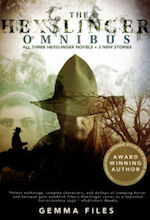 There are plenty of supernatural elements in this series: magic, vengeful goddesses, a giant rift in the earth that spits out dinosaurs… But I would argue that the true threat to the characters comes not from the magic itself, but from the way they use it. The most unsettling aspect of the book is the sometimes toxic, sometimes tender relationship between the Reverend Asher Rook, an outlaw “hexslinger,” and his hair-trigger tempered lieutenant and lover, Chess Pargeter. Magicians in the Hexslinger world are doomed to isolated, painful lives, and the question becomes whether the Reverend can overcome his greed and find redemption with Chess.
There are plenty of supernatural elements in this series: magic, vengeful goddesses, a giant rift in the earth that spits out dinosaurs… But I would argue that the true threat to the characters comes not from the magic itself, but from the way they use it. The most unsettling aspect of the book is the sometimes toxic, sometimes tender relationship between the Reverend Asher Rook, an outlaw “hexslinger,” and his hair-trigger tempered lieutenant and lover, Chess Pargeter. Magicians in the Hexslinger world are doomed to isolated, painful lives, and the question becomes whether the Reverend can overcome his greed and find redemption with Chess.
The Wicked Girls by Alex Marwood
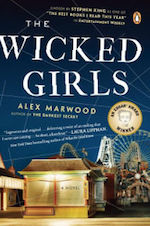 I’m a sucker for anything carnival-themed, but there are no evil clowns or funhouses of death here. Instead, The Wicked Girls follows two middle-aged women—Amber, a carnival cleaner, and Kirsty, a journalist—as they attempt to keep their separate, unremarkable lives under control. Until a chance encounter sets things spiraling toward disaster.
I’m a sucker for anything carnival-themed, but there are no evil clowns or funhouses of death here. Instead, The Wicked Girls follows two middle-aged women—Amber, a carnival cleaner, and Kirsty, a journalist—as they attempt to keep their separate, unremarkable lives under control. Until a chance encounter sets things spiraling toward disaster.
The book weaves back and forth in time, from the present to a childhood where Amber and Kirsty knew each other by different names. The two women are bound together by a horrible event: the long ago murder of a four-year-old, for which they were jointly convicted and served time in a juvenile prison before being released with new identities and a legal mandate never to contact each other again. Props to Marwood for her ability to make her leads by turns sympathetic and repellant, while casually offering mob mentality as an alternative villain in this story. What’s scarier—two allegedly murderous eleven-year-olds, or a gang of self-righteous townspeople hell-bent on vigilante justice? At times, it’s a toss up.
My Loose Thread by Dennis Cooper
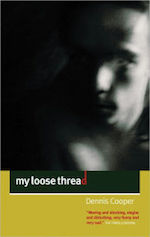 Cooper has a knack for creating horror out of ordinary human loneliness. His characters are raw, confused, and often out of sync with the rest of society. Cooper’s The Sluts is one of the most disturbing, darkly comic depictions of anonymous deceit on the internet I’ve ever read. But My Loose Thread trades satire for a story that is truly bleak and chilling. The main character, Larry—unsure of his sexuality, involved in an incestuous relationship with his younger brother, and grieving for a dead friend—falls in with a neo-Nazi group and plans, first to kill a classmate, and then violence on a larger scale. It might be tempting to dismiss this book as a desolate morass of human evil, except that Cooper infuses it with moments of beauty and empathy.
Cooper has a knack for creating horror out of ordinary human loneliness. His characters are raw, confused, and often out of sync with the rest of society. Cooper’s The Sluts is one of the most disturbing, darkly comic depictions of anonymous deceit on the internet I’ve ever read. But My Loose Thread trades satire for a story that is truly bleak and chilling. The main character, Larry—unsure of his sexuality, involved in an incestuous relationship with his younger brother, and grieving for a dead friend—falls in with a neo-Nazi group and plans, first to kill a classmate, and then violence on a larger scale. It might be tempting to dismiss this book as a desolate morass of human evil, except that Cooper infuses it with moments of beauty and empathy.
We Need to Talk About Kevin by Lionel Shriver
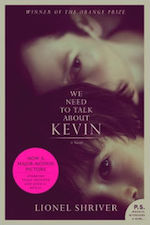 Told from the perspective of the mother of a school shooter writing letters to her estranged husband, We Need to Talk About Kevin explores the question of nature versus nurture in determining human wickedness. When I told my mom I was doing this list and asked if she would consider Kevin a horror novel, she stared at me for a second and said, “That last scene, J.A. That last scene.” I agree. Though it’s technically literary fiction, and very much grounded in reality, this deft and unflinching portrayal of a family torn apart by violence is truly horrifying. The novel’s last few scenes are particularly brutal, culminating in a heave-up-your-lunch final image that is burned forever in my mind.
Told from the perspective of the mother of a school shooter writing letters to her estranged husband, We Need to Talk About Kevin explores the question of nature versus nurture in determining human wickedness. When I told my mom I was doing this list and asked if she would consider Kevin a horror novel, she stared at me for a second and said, “That last scene, J.A. That last scene.” I agree. Though it’s technically literary fiction, and very much grounded in reality, this deft and unflinching portrayal of a family torn apart by violence is truly horrifying. The novel’s last few scenes are particularly brutal, culminating in a heave-up-your-lunch final image that is burned forever in my mind.
Top image: We Need to Talk About Kevin (2011)
J.A. Rock is the author or coauthor of over twenty LGBTQ romance, suspense, and horror novels, as well as an occasional contributor to HuffPo Queer Voices. J.A. has received Lambda Literary and INDIEFAB Award nominations for Minotaur, and The Subs Club received the 2016 National Leather Association-International Pauline Reage Novel Award. J.A. lives in Chicago with an extremely judgmental dog, Professor Anne Studebaker. Follow J.A. on Twitter or Facebook.










